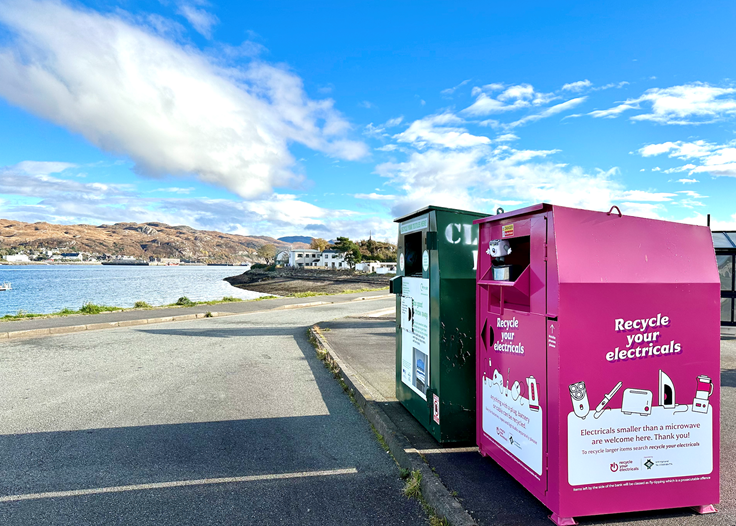
The company, which says it has a 30% share in the UKs CRT recycling market, states that in order to comply with new EA guidance which came into effect on Christmas Day, it would have to pay for an indoor storage and reception building or for a significant extension to its existing site at its CRT facility in Rhydymwyn, Flintshire, at major expense.
However,the Environment Agency has indicated that it does not think it is responsible for the company’s decision.
In a statement the EA said: “Environment Agency Wales would like to clarify that at a meeting with the company it only required a review of measures to meet the accepted environmental standards. These standards are not new and this was raised with the site over a year ago. Specific details, timescales and costs for any improvement works were not discussed at the meeting but the Agency made it clear that the company had time to comply.”
Under the guidelines, CRT reprocessors are required to handle, store and transport CRT glass in contained conditions, to prevent dust and fluorescent coatings from contaminating the environment when the tubes are broken.
The guidance states: Any broken CRTs must be handled in an enclosed environment with appropriate systems to ensure that any fluorescent coatings/leaded glass dust released are contained, collected and subsequently managed properly.
“The inevitable consequence of smashing CRTs, is that some fluorescent coatings/leaded glass dust will be released at both the dismantling site and the receiving site if there is not adequate containment or abatement of this activity.
CRT Recyclings managing director Carl Kruger, said: Despite operating the most sophisticated mass production-led CRT glass reprocessing operation in the UK, and being one of only two CRT glass processors with end of waste status granted by the EA, the new requirement relating to the storage of broken CRT glass has presented the company with an impossible situation.
Environmental Protection
An Environment Agency spokesperson said: To protect local rivers and the wider environment, every site that recycles cathode ray tubes must make every effort to contain the dust and screen coatings from the process. This is a condition of the environmental permit that sets standards for the site that have to be followed.
We met with CRT Recycling last Tuesday to see if and how any improvements could be made in the way it deals with cathode ray tubes onsite. This was only the start of the review of their processes and we would expect the company to carry on with its activities as improvements are made.
We do not understand why the company would decide to stop its operation because of this.
CRT Recyclers told letsrecycle that no other factors had lead to them seeking insolvency advice and that the market had been steady, and in recent years it had processed around 23-24,000 tonnes of CRT glass per year, close to full capacity at its Rhydymwyn plant. It is now likely that all 19 of the permanent staff employed at the site will lose their jobs.
Planning
Mr Kruger added: The EA requirements would now require large-scale financial expenditure and, as they well know, a contentious planning application involving a lengthy and difficult period of consultation with local residents.
Throughout a build programme we would be unable to accept CRT glass for several months, and would have to increase gate fees to a level which would result in glass supplies simply going elsewhere.
We struggled to have our views heard as, despite holding 30% market share, we were not invited to sit on their consultative group and have had to use the Freedom of Information Act to acquire data on the Agencys testing conclusions.
The new EA guidelines have also drawn criticism from elsewhere in the industry. Dean Overton, managing director at WEEE recycling firm Overton Recycling claimed that the new requirements could have an adverse environmental impact.
He said: I dont believe that the EA has fully thought through the overall environmental impacts in that the new conditions placed on suppliers will require three times as many vehicle movements and subsequent CO2 and other emissions.










Subscribe for free